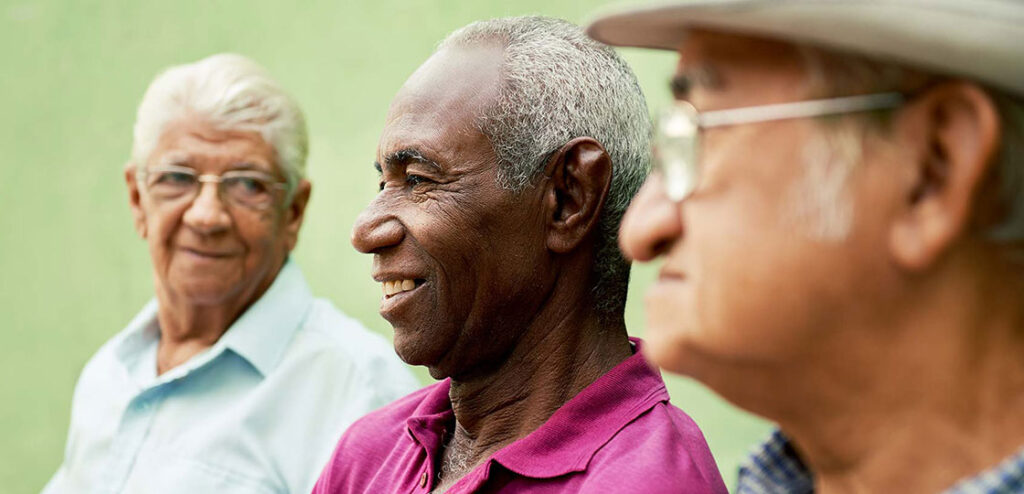Aging with HIV: Geriatric Care Considerations and Supporting Well-being
Share IT

Launch Your Dream Website with Us!
Click Here to Get in touch with Us.
Categories
HIV/AIDS and the aging population
HIV/AIDS and the Ageing Population: Silver Tsunami and Red Ribbon Together
Antiretroviral therapy (ART) advancements have changed HIV/AIDS from a fatal condition to a chronic sickness that may be managed. As a result, the number of older adults living with HIV (OALWH) is rising. However, the confluence of ageing and HIV presents particular concerns for this generation. Comprehending these obstacles is essential to delivering geriatric care customised to their requirements.
Thank you for reading this post, don't forget to subscribe!Table of Contents

Considering Geriatric Care for OALWH
HIV/AIDS and the aging population
The demands of OALWH differ from those of younger PLWH for a number of reasons:
- Multimorbidity: Heart disease, diabetes, and arthritis are among the chronic illnesses that OALWH are more likely to have co-occurring.
- Drug Interactions: Taking several different medications for HIV and other illnesses might result in complicated interactions that need to be closely watched.
- Frailty: OALWH are more likely to have frailty, which is typified by weakness, exhaustion, and diminished physical function.
- Cognitive Decline: Compared to the overall ageing population, OALWH may be more likely to experience cognitive impairment, including dementia.
HIV/AIDS and the aging population
These elements demand that geriatric care for OALWH be provided in an all-encompassing manner, including:
- The Comprehensive Geriatric Assessment (CGA): is a tool used to create individualised care plans by assessing the physical, cognitive, functional, and mental health needs of the elderly.
- Medication Management: A well-coordinated strategy is needed to optimise drug regimens in order to reduce interactions and maximise benefits.
- Emphasise Functional Independence: OALWH can preserve their independence and quality of life with the aid of specialised therapies and support networks.
- Mental Health Support: Social isolation, anxiety, and depression are possible for OALWH. It is imperative to attend to these mental health concerns.
- Social Support Services: Creating strong social networks is beneficial for preventing social isolation and enhancing wellbeing.
Revealing the Connection Between HIV and Ageing
HIV/AIDS and the aging population
Some of the difficulties OALWH faces can be attributed to the long-term impacts of HIV and ART:
- Chronic Inflammation: HIV infection may result in low-grade chronic inflammation, which may hasten the ageing process.
- Immune System Activation: HIV can cause the immune system to become hyperactive, which over time may harm other bodily systems.
- ART Side Effects: Weariness, cognitive decline, and bone weakening are all possible effects of several ART drugs.
HIV/AIDS and the aging population
Comprehending these associations is essential in order to offer focused therapies and reduce the influence of HIV on general health as older adults (OALWH) get older.
Frailty and Cognitive Decline: A Double Threat
HIV/AIDS and the aging population
For OALWH, cognitive decline and frailty present particular concerns:
- Cognitive Impairment: HIV infection and antiretroviral therapy (ART) have been linked to a higher risk of cognitive impairment. Treatment and early detection are crucial.
- Frailty: Being frail can increase the likelihood of institutionalisation and make controlling HIV and other chronic diseases more difficult.
Taking on these obstacles highlights the significance of:
- Early Identification: Routine cognitive evaluations can aid in the early detection of any cognitive decline.
- Cognitive Rehabilitation: OALWH can retain cognitive function with the support of therapeutic therapies.
- Exercise and Physical Therapy: Physical activity can slow down the onset of frailty by enhancing strength, balance, and resilience.
HIV/AIDS and the aging population
The maintenance of OALWH’s physical and cognitive independence is essential to their general wellbeing.
Embracing the Future: A Team Approach
HIV/AIDS and the aging population
In order to provide OALWH with the best treatment possible, cooperation between:
- HIV specialists: Management of HIV is a critical area of expertise.
- Geriatricians: It is essential to understand age-related conditions and the fundamentals of geriatric care.
- Primary Care Physicians: It’s critical to coordinate care among various medical specialisations.
- Individuals Receiving Care and Support: It is essential to include OALWH in choices about their care and to support carers.
HIV/AIDS and the aging population
Through promoting cooperation and creating creative care plans, we can guarantee that OALWH people live long and happy lives.
In summary
HIV/AIDS and the aging population
The OALWH population is expanding, which offers a chance to revolutionise geriatric care. We can make sure that this people may live freely and well with HIV/AIDS well into their golden years by recognising their special needs and developing an all-encompassing, cooperative strategy.

Launch Your Dream Website with Us!
Click Here to Get in touch with Us.





























































Recent Comments